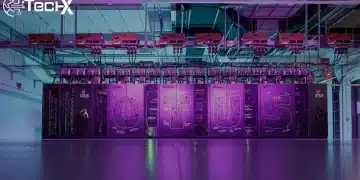Dubai has taken a bold step in healthcare innovation with the launch of its AI-powered Virtual ICU system. This advanced system is designed to monitor critical patients in real time and send instant alerts to doctors and nurses if any signs of distress appear. The project marks a milestone in Dubai’s vision to blend artificial intelligence with modern medical care for better, faster results.
Pilot Project Begins at Al Jalila Children’s Hospital
The first testing of this AI-powered system is happening at Al Jalila Children’s Hospital, where ten ICU beds are now equipped with smart monitoring tools. These AI cameras study patient movements, facial expressions, and skin color changes that could show discomfort or potential emergencies. The aim is to detect problems early and ensure quick medical action before the situation worsens.
Real-Time Monitoring with Smart AI Cameras
The system uses cutting-edge AI cameras that never rest. They watch patients continuously, observing their expressions, movements, and skin tones. If the system senses anything unusual, like distress or pain, it immediately alerts the nurses’ station. This early warning allows medical teams to respond swiftly, ensuring patient safety and reducing the risk of life-threatening delays in treatment.
Integration with Dubai’s Medical Record System
Dubai Health has connected the Virtual ICU with its Salama platform, the city’s unified electronic medical record system. This connection allows automatic tracking of vital signs such as blood pressure and heart rate. Doctors can access this data instantly, gaining a complete view of a patient’s condition. The system eliminates delays in data sharing and improves coordination among healthcare teams.
Key Features of Dubai’s Virtual ICU
| Feature | Description |
|---|---|
| Technology Used | AI-powered cameras and sensors for continuous patient monitoring. |
| Hospital Involved | Al Jalila Children’s Hospital, Dubai. |
| Number of ICU Beds | 10 ICU beds connected during the pilot phase. |
| Integration System | Linked with Salama, Dubai Health’s EMR system. |
| International Partner | National Children’s Hospital, Washington, D.C., USA. |
| Monitoring Scope | Facial expressions, movement, and skin color changes for early signs of distress. |
| Alert Mechanism | Real-time notifications are sent to nursing stations for immediate medical action. |
| Launch Phase Completion | Pilot phase ending in December before full implementation. |
Global Partnership for Smart Healthcare
This advanced AI project is not a local effort alone; it was developed in collaboration with the National Children’s Hospital in Washington, D.C. Through this partnership, medical experts in the United States can remotely monitor the same ICU beds in Dubai. This cross-border teamwork shows how technology can unite hospitals worldwide to improve patient care and medical research.
Also Read: Over 100 Pakistan’s IT Firms Join Saudi Arabia’s Digital Economy
Command Centers Ensure Continuous Supervision
A dedicated command center in the U.S. monitors data from Dubai’s Virtual ICU in real time. This setup ensures that medical experts can guide and support local teams when needed. It also opens the door to sharing insights and treatment recommendations instantly, no matter the distance. This global connection strengthens Dubai’s healthcare system and promotes international medical cooperation.
Pilot Phase Nears Completion
According to Hend Majed Al Abbar, Director of the AI Enablement Department at Dubai Health, the pilot testing is almost complete and will become fully functional by December. Once operational, the system’s performance will be carefully studied to measure its benefits for patient care. The insights gained will guide Dubai Health in expanding the Virtual ICU system to other hospitals.
A Vision for the Future of Medicine
Dubai’s AI-powered Virtual ICU marks a turning point in modern healthcare. By combining advanced artificial intelligence with medical expertise, the city is setting a new global example in digital healthcare innovation. As this system expands across hospitals, it promises safer patient monitoring, faster responses, and a brighter, technology-driven future for healthcare in Dubai and beyond.
















